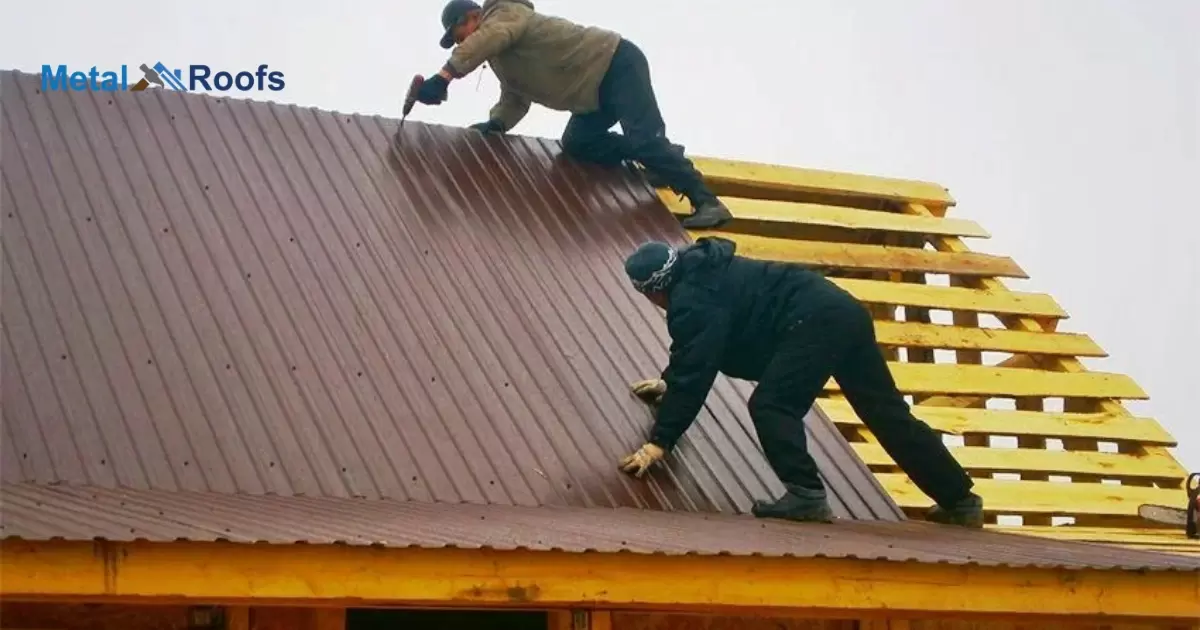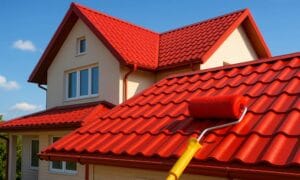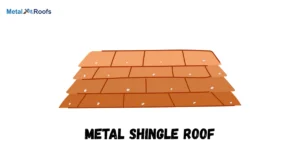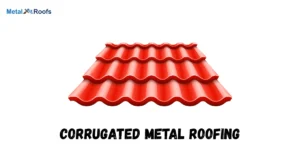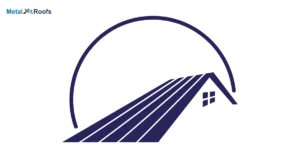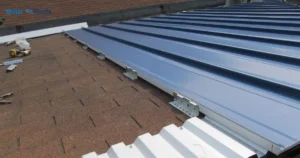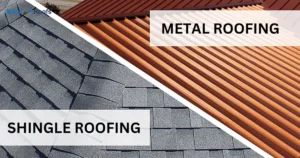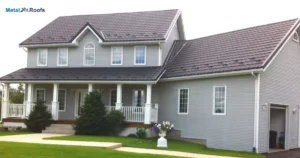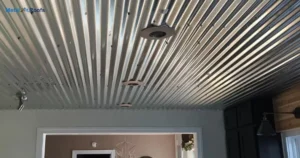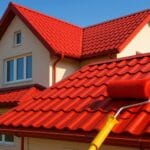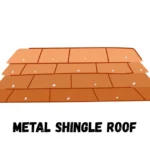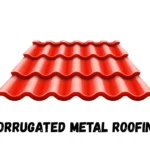Metal roofs expand when heated by the sun and contract when cooled at night, the tension from this repeated expansion and contraction causes the roof panels to pop and click audibly as they move against brackets and screws.
The metal panels expand when hot. They contract when cold. This daily movement tensions roof parts. It makes brackets and screws click against the metal. The nighttime cooling crunches everything back together. Do metal roofs make popping noises often?
The popping happens because metal expands when hot and shrinks when cold. Sun heats the roof all day. Then at night it radiates heat and cools. The panels grow longer in the heat, which can exacerbate any existing issues, such as a repair flat garage roof. This pushing on the screws and brackets makes them creak and pop.
Key Takeaways
- Light popping noises from metal roofs are normal, especially early on, as they expand and contract with temperature changes.
- Loud, sudden bangs may indicate a fastener is loose and require inspection.
- Proper installation and maintenance can minimize movement sounds.
- The noises are usually harmless and worth the tradeoff for the durability of metal roofs.
Causes Popping Noises in Metal Roofing
Metal roofs sometimes produce popping noises, typically when temperature changes occur. These sounds result from the metal panels expanding or contracting. During the day, when the roof heats up, the metal expands, causing it to move and sometimes rub against other parts. As the temperature drops at night, the metal contracts, leading to further movement and potential noise.
Another factor contributing to popping noises is the installation process. If the metal panels are not properly fastened or secured, they may shift slightly over time, creating friction and generating sounds. The roof’s support structure, such as rafters or trusses, can also play a role.
How Do Metal Roofs Contribute to Popping Noises?
| Factors Contributing to Popping Noises | Explanation |
| Thermal Expansion and Contraction | Metal panels expand and contract with temperature changes, causing them to rub against each other or the roof’s support structure, resulting in popping sounds. |
| Installation Issues | Improper installation or fastening of metal panels can lead to movement, which can amplify noise generation when the roof expands or contracts. |
Metal roofs often make popping sounds due to temperature changes. During the day, the metal expands, and at night, it contracts. This expansion and contraction cause the metal panels to rub against each other or against the roof’s support structure. As a result, popping noises occur as the metal moves.
These sounds can be more noticeable when there are rapid temperature changes, such as transitioning from hot to cool weather. While these noises can be alarming, they are typically harmless and don’t indicate any structural issues with the roof.
Heavy Rain Impact Popping Noises on a Metal Roof
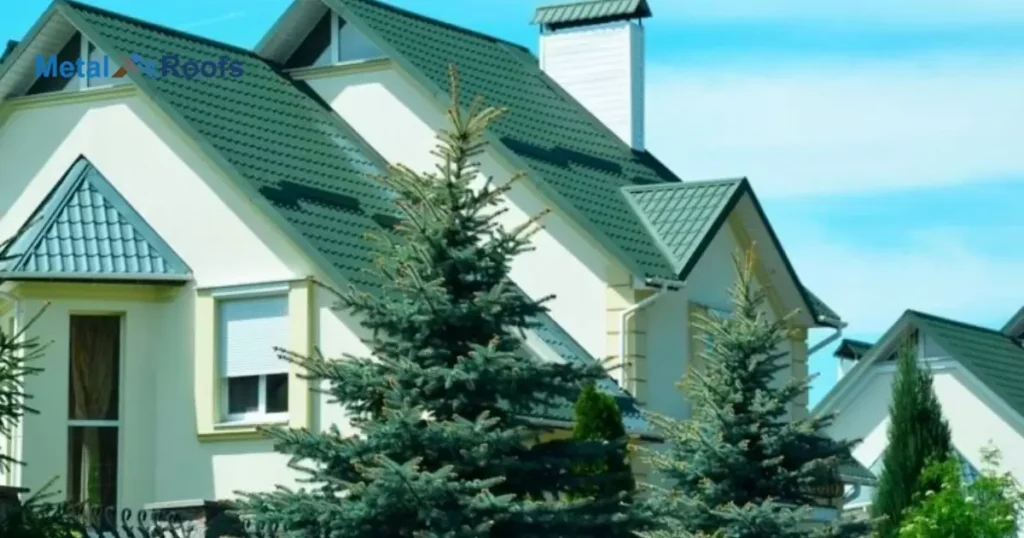
During heavy rain, a metal roof may produce popping noises due to thermal expansion. The rain cools the metal quickly, causing it to contract, leading to stress on the roof structure. This stress can result in the metal panels shifting slightly, creating popping sounds. These noises are generally harmless and common in metal roofs.
To minimize popping noises during heavy rain, ensure proper installation and maintenance of the roof. Consider adding insulation or padding between the metal panels and the roof structure to dampen sound transmission. Regular inspection of the roof can help detect any issues early on and prevent potential damage.
Relationship Between Insomnia and Popping Noises on a Metal Roof
When you can’t sleep, every sound matters. Metal roofs can make popping noises, especially when they cool down at night. This noise might keep you awake or wake you up during the night. It’s not just the roof making noise it’s your sleep on the line. Insomnia and metal roof popping noises often go hand in hand.
The sounds can disrupt your sleep cycle, leading to more restless nights. If you’re struggling to sleep and hearing popping noises from your metal roof, it might be worth investigating. A good night’s sleep is essential for your health and well-being, so addressing any factors that disturb it is important.
Benefits Of Installing A Roof With Popping Noises
Installing a roof with popping noises is not typically a desired outcome, as it may indicate underlying issues or poor installation quality. Popping noises can signal several problems, including.
Poor Installation: Popping noises may result from improper installation techniques or materials. This could compromise the structural integrity of the roof and lead to further issues down the line.
Moisture Problems: Moisture trapped within the roofing materials or the attic space can cause expansion and contraction, leading to popping or creaking noises. This could be a sign of inadequate ventilation or insulation.
Temperature Fluctuations: Extreme temperature changes can cause the roofing materials to expand and contract, resulting in popping noises. While some degree of expansion and contraction is normal, excessive movement may indicate a problem.
Material Defects: Certain roofing materials, such as shingles or underlayment, may be prone to defects that cause popping noises over time. Quality control issues or manufacturing defects could be to blame.
Structural Issues: Popping noises could also indicate structural issues with the roof or the building itself. This could include issues with the roof decking, trusses, or supports.
Pest Infestations: In some cases, popping noises may be caused by pests such as rodents or insects nesting within the roof or attic space. This can lead to damage and further complications if left untreated.
While there may not be direct benefits to installing a roof with popping noises, addressing the underlying issues promptly can prevent further damage and ensure the long-term performance of the roof.
Thermal Expansion And Contraction
Thermal expansion and contraction happen when materials change size due to temperature changes. When things heat up, they expand when they cool down, they contract. This can affect various materials, including metals, plastics, and even concrete.
For example, metal roofs may make popping sounds as they expand during the day and contract at night. These noises occur when the metal panels rub against each other or the roof’s support structure. While this can be concerning, it’s usually harmless and doesn’t indicate a problem with the roof’s integrity.
Metal Roof Thermal Expansion Noise And Metal Roofs
Metal roofs can make noises when they expand or contract due to temperature changes. These sounds, often described as popping or creaking, occur as the metal panels shift against each other or the roof’s support structure. Typically, the noises are more noticeable during transitions from daytime heat to nighttime cooling.
Despite being alarming, these noises are generally harmless and don’t signify structural issues. If the sounds persist or seem unusually loud, it’s wise to have a professional inspect the roof. Regular maintenance can help ensure the roof remains in good condition and minimize potential noise disruptions.
Roof Popping Noise In Cold Weather
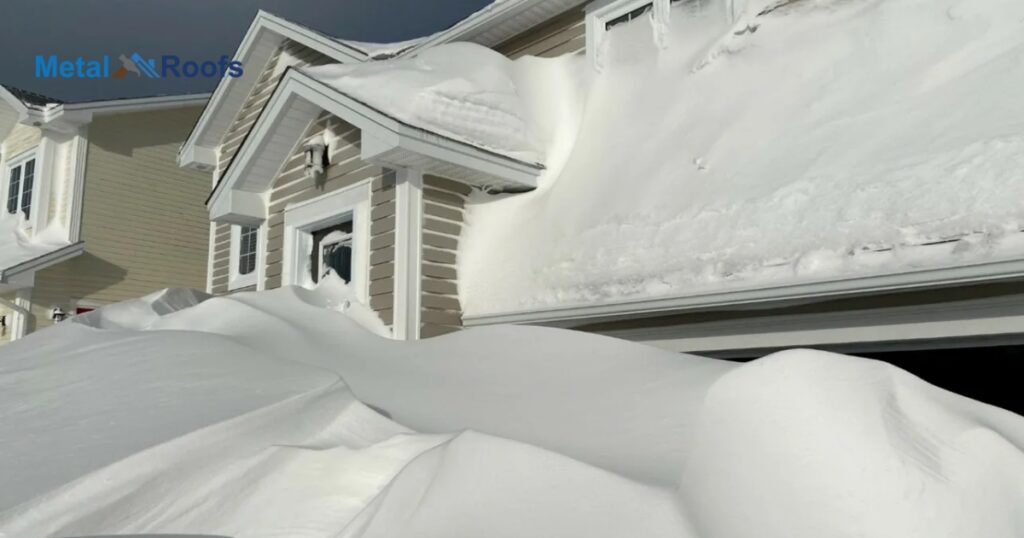
During cold weather, metal roofs may produce popping noises. These sounds occur due to the metal panels expanding and contracting with temperature changes. When the roof heats up during the day and cools down at night, the metal expands and contracts, causing it to rub against other materials.
This friction generates the popping noises that can be heard inside the building. While these noises can be startling, they are typically harmless and do not indicate any structural issues with the roof. If the noises persist or seem unusually loud, it’s advisable to have a professional inspect the roof to ensure its integrity.
Gutters Making Popping Noise
During cold weather, metal roofs may make popping noises. These sounds happen because the metal expands or contracts due to temperature changes. As the day cools into the night, the roof adjusts, leading to these noises. While it might sound alarming, it’s usually not a sign of serious trouble.
Similarly, gutters can also make popping noises in cold weather. The metal in the gutters reacts to the temperature, causing it to expand or contract. This movement can result in popping sounds as the material shifts.
How To Stop Thermal Expansion Noise?
To stop thermal expansion noise in metal roofs, insulation is key. Choose insulation materials designed to minimize temperature-related movement. Insulating the attic space beneath the roof can help absorb sound and reduce noise transmission.
Installing a noise-reducing underlayment between the metal panels and the roof deck can dampen the sounds caused by expansion and contraction.
Ensuring proper ventilation in the attic can also help regulate temperatures and reduce the extent of thermal expansion. Properly fastening the metal panels to the roof structure with flexible fasteners can allow for some movement without generating excessive noise.
What are the two biggest concerns to a metal roof?
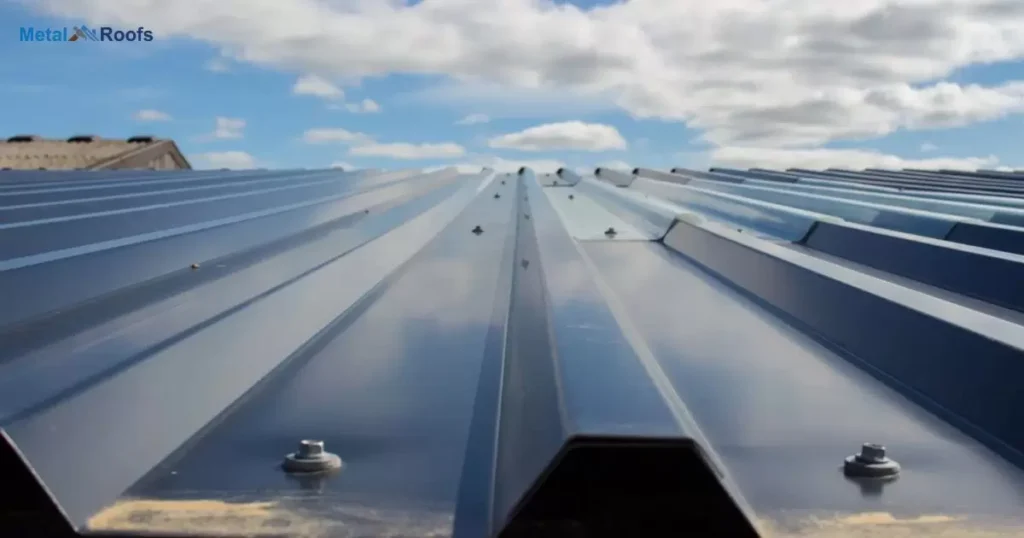
The two biggest concerns with metal roofs are corrosion and thermal movement.
Corrosion: Metal roofs are prone to rust and corrosion, especially in environments with high humidity, saltwater exposure (such as coastal areas), or acidic rain.
While many metal roofs are coated with protective layers to prevent rust, these coatings can wear down over time. Regular maintenance and choosing the right type of metal and protective coatings can help mitigate this risk.
Thermal Movement: Metal expands and contracts with temperature changes. This thermal movement can cause metal panels to warp, loosen, or even damage the fasteners holding them in place.
Over time, this can lead to leaks and other structural issues. Proper installation, including the use of appropriate fasteners and allowing for movement in the roof design, can help manage thermal expansion and contraction.
Frequently Asked Questions
How do you stop a metal roof from popping?
To stop a metal roof from popping, tighten loose fasteners, apply lubricant, and add insulation. Regular maintenance and inspection are crucial for preventing issues.
Why does my metal roof make noises?
Metal roofs make noises due to temperature changes. During the day, they expand, and at night, they contract. This movement can cause popping or creaking sounds as the metal panels rub against each other or the support structure.
What are the two biggest concerns to a metal roof?
The two main concerns for a metal roof are noise and corrosion. Temperature changes can cause popping noises, but they’re usually harmless. Corrosion from moisture and chemicals can weaken the roof over time, requiring maintenance to prevent damage.
Conclusion
The popping and clicking is normal for metal roofs. It happens because of expansion and contraction. The sun warms the panels during the day. This makes them grow slightly longer. At night they shrink again as heat radiates away. The movement presses on brackets and screws. So you hear creaks and pops.
Some popping is expected with metal roofs. If loud bangs or cracks happen, inspect the roof. Make sure expansion joints and valleys function well. Debris can also cause extra noise when stepped on. Overall small pops are no concern and a sign of normal movement. But large abrupt sounds deserve a closer look to check nothing is broken or shifted.
